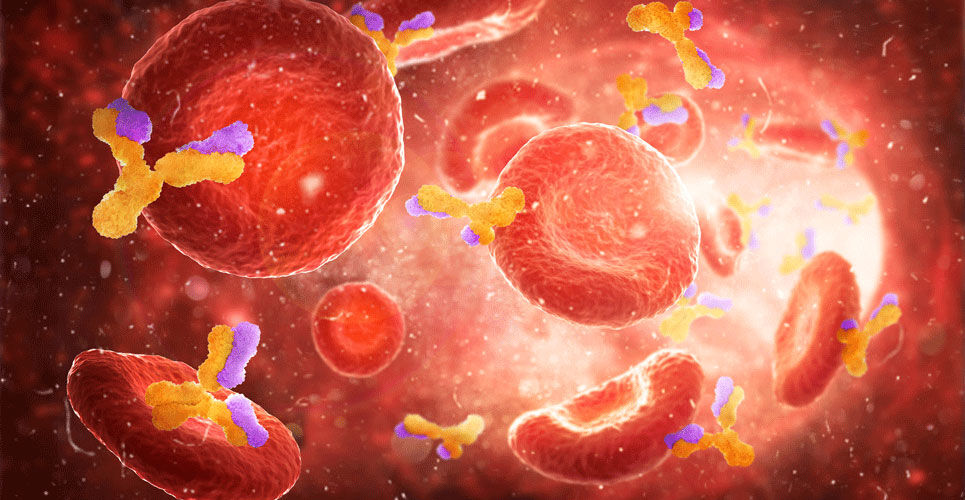Anti-CD20 therapy for haematological cancer patients increases the risk of adverse outcomes in COVID-19 despite having three vaccinations.
Anti-CD20 therapy for patients with haematological cancers, still poses an increased risk for adverse outcomes following a breakthrough COVID-19 infection, despite triple vaccination, according to the findings of a retrospective population-based cohort study by Canadian researchers.
While patients with cancer were excluded from the initial clinical trials of COVID-19 vaccines, emerging evidence suggested that adult patients with haematological malignancies, infected with the virus, especially those who were hospitalised and over 60 years of age, were at an increased risk of death.
Moreover, once vaccinated, it became clear that patients with haematological cancers displayed an impaired humoral response and the recognition that breakthrough infections were possible and that these infections were correlated with the level of neutralising antibody titers during the peri-infection period, researchers hypothesised that haematological malignancy patients and even those with other types of cancer, might experience a more severe outcomes if infected with COVID-19.
In the present study, the Canadian team set out to examine the relative risk of COVID-19 breakthrough infections and COVID-19-related outcomes in vaccinated patients with cancer (including haematological and solid tumours) compared to matched non-cancer controls.
In addition, they considered whether current treatment of cancer, with for example, anti-CD20 therapy, impacted on the risk of COVID-related outcomes.
Using a retrospective design, researchers matched patients with haematologic cancer to non-cancer controls (1:4), based on age, sex, type of vaccine, date of vaccine.
The primary outcome was COVID-19 breakthrough infection, whereas secondary outcomes were emergency department visits, hospitalisation and death within 4 weeks of infection and the outcomes adjusted for gender, age socioeconomic status and vital status.
Anti-CD20 therapy and COVID-19 outcomes
A total of 289,400 vaccinated cancer patients with a mean age of 66.05 years (65.4% female) were matched with 1,157,600 non-cancer controls. During the period of the study, there were 3118 and 12 150 breakthrough infections in the cancer and non-cancer groups, respectively.
Overall, the risk of a COVID-19 breakthrough infection was significantly higher among cancer patients compared to non-cancer controls (adjusted Hazard ratio, aHR = 1.05, 95% CI, 1.01 – 1.09, p = 0.02).
However, the risk was significantly greater among patients with haematologic cancers (aHR = 1.33, 95% CI 1.20 – 1.46, p < 0.01) compared to controls.
There were also significantly elevated risks for haematological cancer patients (compared to controls) for emergency department visits, hospitalisation and death.
However, when researchers looked at patients who had received a third COVID-19 vaccine dose, this was associated with lower risk of breakthrough infection for blood cancer patients (aHR = 0.61, 95% CI 0.54. – 0.69, p < 0.01).
Among haematological cancer patients in receipt of anti-CD20 therapy, there remained an elevated risk of breakthrough infection (aHR = 1.88, 95% CI 1.27 – 2.78, p =0.02) as well as for emergency department visits, hospitalisation and death.
Although a third vaccine dose was associated with a lower risk of infection and COVID-19 complications for all cancer patients, this did not significantly reduce the risk among haematological cancer patients receiving anti-CD20 therapy.
For example, the adjusted hazard ratio for death was 0.49 (p = 0.24) and 1.19 (p = 0.46) for severe outcomes.
The authors concluded that patients with haematological cancer had the highest risk for breakthrough infections and adverse COVID-19 outcomes, particularly for those who received anti-CD20 therapy.
Citation
Gong IY et al. Association of COVID-19 Vaccination With Breakthrough Infections and Complications in Patients With Cancer. JAMA Oncol 2022.

